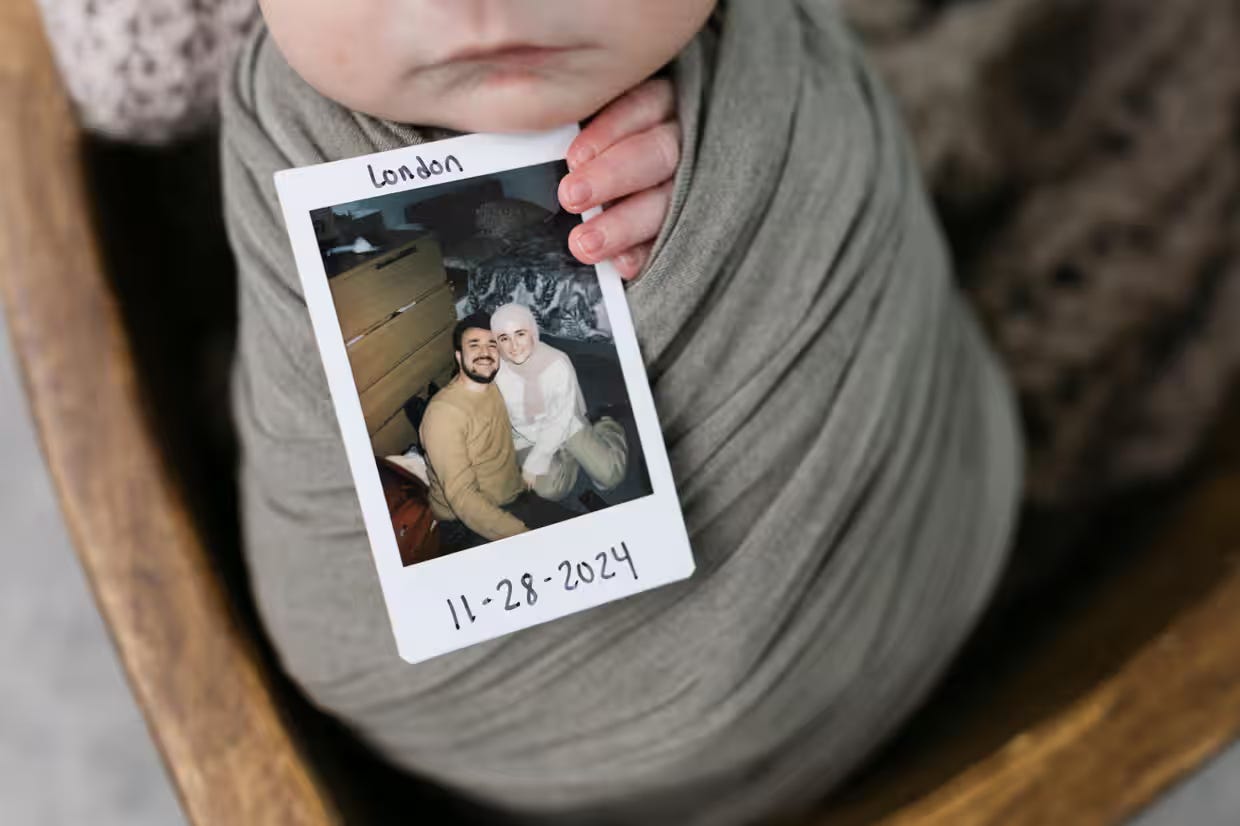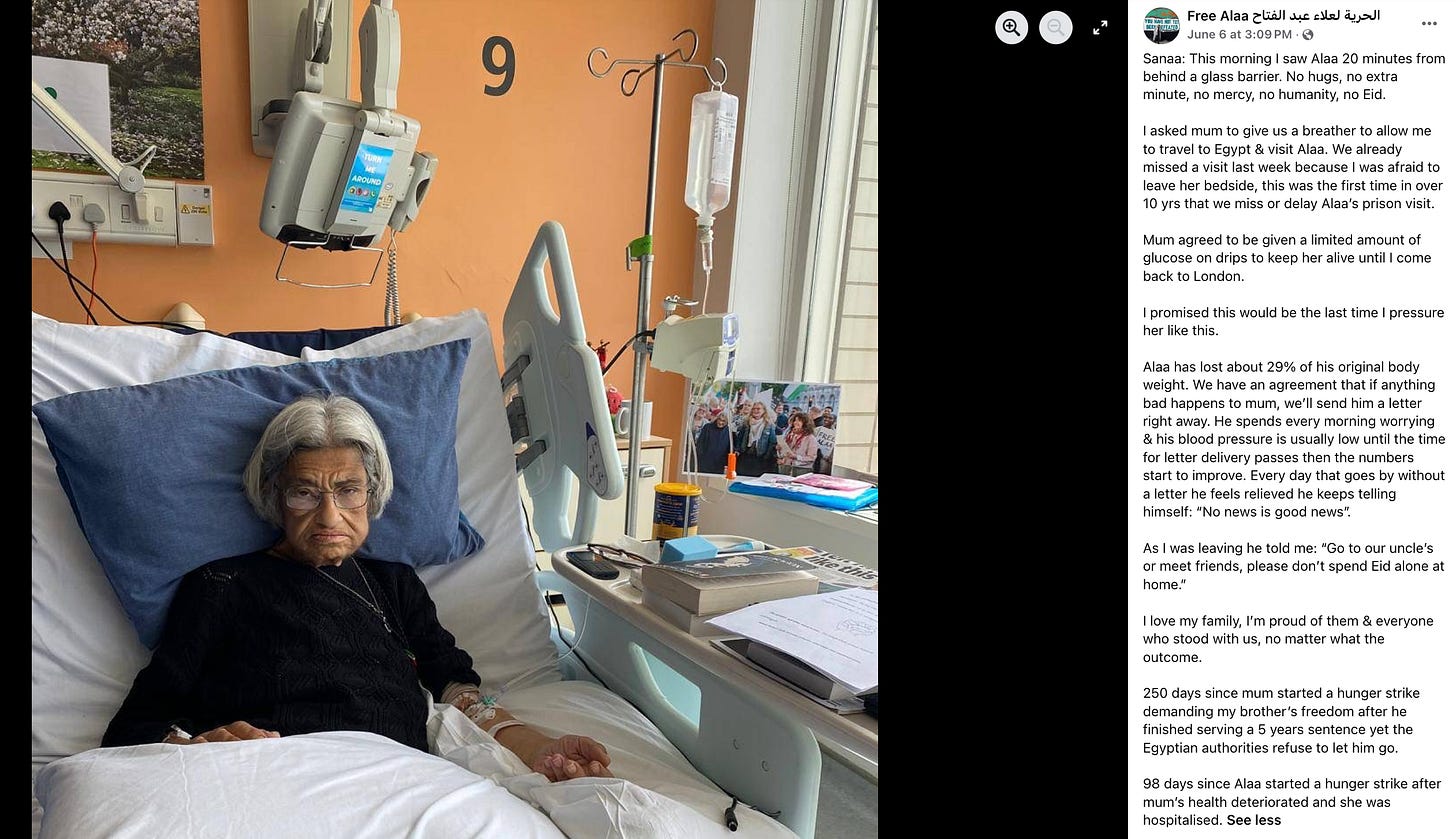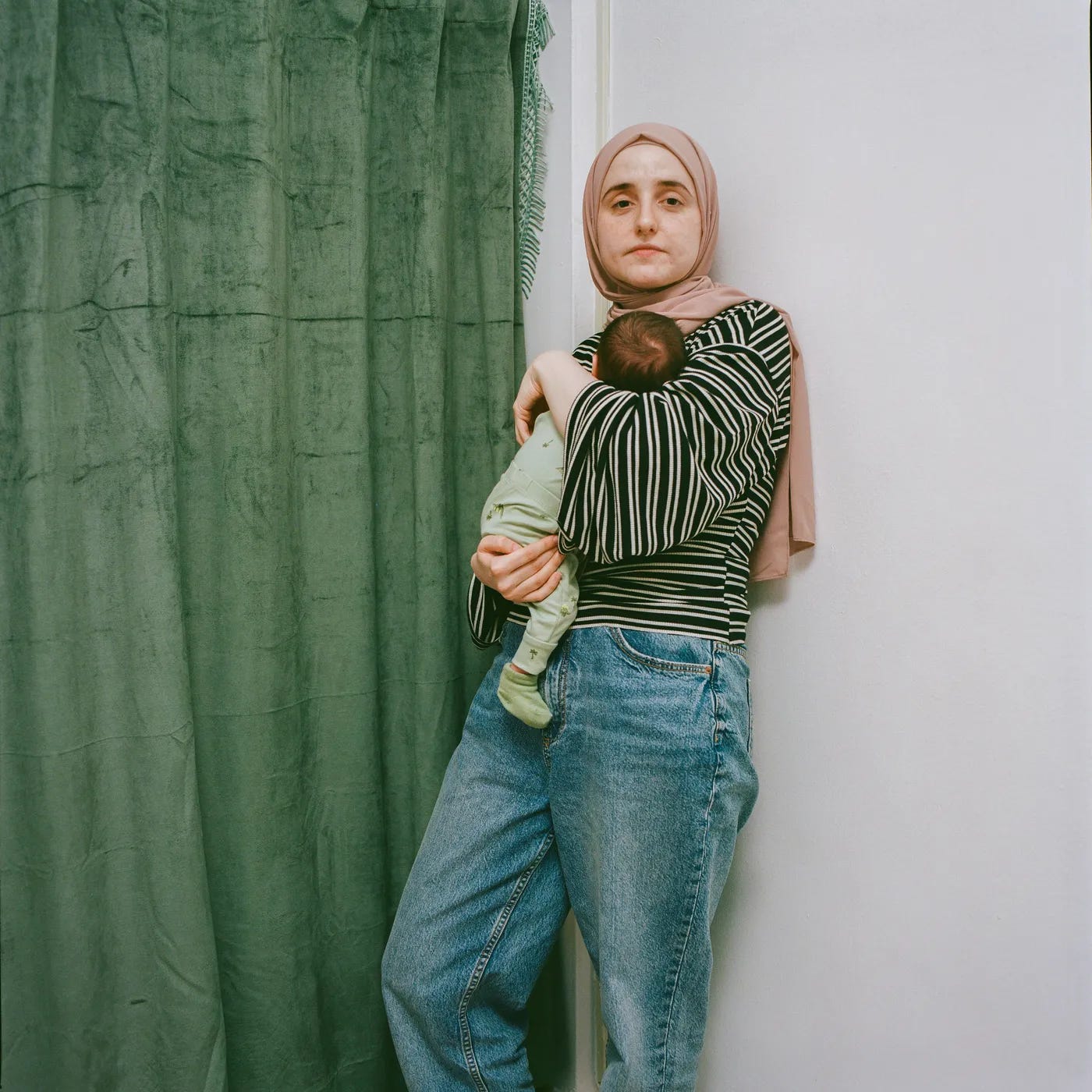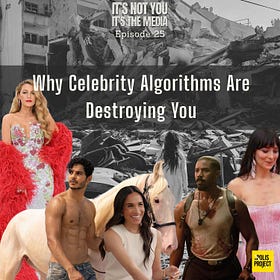Parenting in a time of genocide
Stories of Greta Thunberg on Gaza freedom flotilla, Laila Souief’s deteriorating health and Noor Abdalla's reflections on motherhood reveal parenting as a point of pain for Bhakti Shringarpure.

I spent the morning making a three-layer banana cake with cream cheese frosting for my teenage son's birthday. It is a complicated recipe that demands time and attention to minutiae. But I was slowed down, and focus was particularly hard to come by, as I became occupied by three intersecting stories: Greta Thunberg aboard the Gaza Freedom Flotilla; Laila Souief’s deteriorating health from her hunger strike for her imprisoned son, Alaa Abdel Fattah; and Noor Abdalla, wife of detained activist Mahmoud Khalil, talking about the first days after giving birth to their son. For reasons that are not necessarily logical, these three instances have brought parenting into sharp and painful relief for me.
Greta is only 22 years old. She's fiercely brave, but it is hard to forget that we've known her since she was a baby-faced teenager. We are familiar with stories of her parents, Malena and Svante, who had cared for her as she struggled with severe depression as a young girl. They have spoken about how focusing on climate justice brought her out of this dark despair, and they have always supported her journey. But today, I can't help but wonder how it might feel to know that their child, Greta, is potentially on a suicide mission - that the Israeli government will be trying their best to sabotage the flotilla's mission and perhaps assassinate the crew of 12 on board, as they did to a similar flotilla in 2010. I feel this unreasonable attachment even though I am aware of how how young the entire flotilla crew is. I am also painfully aware of the sheer amount of Palestinian children killed and their parents left in indescribable anguish that we keep seeing broadcast on our phones. But today, I am sick with stress for Greta's parents as the flotilla nears Gaza. They must surely be asking themselves how it all got here, and I imagine them wondering if they would have steered their child differently had they known.
Laila Soueif is the 69-year old activist mother of activist, writer and political prisoner Alaa Abdel Fattah, who has been held in Egyptian prison for more than a decade. Alaa's family has tirelessly campaigning for his freedom. Laila's entire life, in fact, has been lived amidst passionate yet incredibly risky political activism. Her late husband was a militant who was jailed and tortured twice, and then went on to become a prominent human rights lawyer. In the period following the uprisings in Cairo, all three of her children had taken to the streets, and her daughter Mona has also spent periods in jail. However, it is Alaa that has endured the most severe and prolonged punishment from a merciless, unrelenting state.
Laila will have been on hunger strike for 250 days, and doctors now warn that her health has deteriorated so much that there is risk of "sudden death." Alaa himself has been on hunger strike for 100 days now, in solidarity with his mother. His sister, Sanaa, was allowed a visit last week, but one that forbade contact and took place behind a glass wall. She reported that Alaa has lost 29% of his body weight and appears frail. Despite non-stop advocacy, protests and hunger strikes for Alaa, Egypt has been unrelenting. And even though Alaa is a British citizen, the UK government's efforts to negotiate his freedom remain feeble.
In a world that values parenting, motherhood and family life to the highest degree, what does it mean when a mother risks her own life to free her son while barbaric governments remain unmoved? Alaa has also been denied the joy of being a parent, and his son, who is now a teenager, has been forced to grow up without him. This family of activists is not prone to regrets and stand committed in their fight for human rights, free speech, Egypt, Palestine - and against oppressive regimes. Yet, I project my own grains of doubt onto their brutalized lives and wonder what if there had been a way to change course. What if.
Noor Abdalla is the wife of Mahmoud Khalil, a student leader and negotiator for the protests for Palestine at Columbia University in New York. Mahmoud was abducted by plainclothes ICE agents right in front of pregantn Noor two months ago, then only weeks away from their baby’s due date. He has remained imprisoned in Louisiana without charge and awaits a decision on deportation from the US, despite having permanent residency. Noor has since given birth to baby boy Deen.
Recently, Noor admitted that her first days as a mother were terrifying. She made her mother accompany the newborn for all the tests at the hospital. "I was too worried that if my baby left my side, someone might take him away from me," she said. Her concerns should not be part of learning to be a new mother: "I don't want him to grow up thinking that a part of his identity is somehow not worthy of protection or that advocating for his people's human rights can land him in trouble like it did his father." Noor is American and grew up in Michigan. She now, understandably, fears for the safety of her own US-born infant who could be abducted by the state for simply being Arab or for having a father who stood up for Palestine. The state has turned parenting is a place of grief and heartache, as Mahmoud is denied time with his newborn baby and Noor finds herself a fearful, watchful and traumatized mother.
I would not call myself a particularly focused or indulgent parent but have had to buckle down these past two years as Israel’s genocide of Palestinians infiltrates every aspect of life. In the fancy international school that my children attend in Paris, support for Israel is belligerent despite a robust Arab and Muslim student body. Eruptions and arguments in classrooms and at lunch breaks have been frequent over the last two years, especially for my 11-year old. I sternly ask her not to argue with her classmates about this. I don’t want my son to attend protests in Paris because I know just how brutal French cops are, especially towards young people who might appear Arab.
The daily parenting calculations have multiplied as I find myself wanting to dumb down and silence my own politically astute children. But the contradictions swirl around me. I want them to aware about what is going on and refuse to shield them from the news of sheer savagery from Palestine. Yet I also want them to lie low and articulate all things Palestine within the home sphere. They have found their own ways. My daughter had to make a wooden push-pull toy in design class. She made a snail on wheels with a watermelon for its back. My son archives pro-Palestinian protest graffiti often found in nooks and crannies of Paris, and a lot of his school research reflects his politics as well.
What does it mean to be parent at a time marked by necropolitical states that are hell-bent on torturing and murdering our children?
I remember watching the much-touted show Adolescence on Netflix while seeing the coverage of Palestinian prisoner Ahmed Manasra being released after 9 years in Israeli prison. He was 13 years old when he was taken, and he endured shocking levels of abuse including interrogations and solitary confinement, and now suffers from severe mental illness. The TV series explored the challenges faced by adolescents in the West due to social media messaging around toxic masculinity and exposed the parents’ lack of knowledge and ability to help their own children. Despite the show’s strengths and sincere social justice messaging, the white western-ness of it all was grating and amplified the dissonance felt by parents like me who straddle several competing realities. There was nonstop hype about this TV show, but hardly a peep about Ahmad Manasra during that week.
I labor to get the swirls perfect for the cake’s frosting. I run out to buy some chocolate to crumble on top of the cake. I become so overwhelmed with the thoughts about Greta and Laila and Noor that I forget about the chocalate and come back without it. I pull out all the stops and make a big lunch for my son’s friends, even as I am constantly aware of the news about Gazans without water and food. The birthday celebrations are wonderful, and I know I have been a good parent this weekend. Yet the dissonance around me is so loud, it is almost like a humming in my ears.
Love and solidarity❤️🔥
Bhakti Shringarpure
Support the Freedom Flotilla Coalition
Join the campaign to end Israel’s illegal blockade of Gaza. Whether through advocacy, awareness-raising, or direct action, your active solidarity matters.
https://freedomflotilla.org/
The Madleen Gaza flotilla live tracker:
https://www.aljazeera.com/news/liveblog/2025/6/4/madleen-gaza-flotilla-live-greta-thunberg-activists-to-arrive-on-june-7
#FreeAlaa
Take action for Alaa Abd el Fattah’s freeom
https://freealaa.net/
Free Mahmoud Khalil
https://action.aclu.org/send-message/free-mahmoud-khalil
Recent publications
Why Celebrity Algorithms are Destroying You
The hosts take a critical look at the algorithms ruling our lives on social media and beyond, with a warning to divest from celebrity content and culture that permeates the news cycle, politics, and more. Whereas the early Facebook and Instagram eras were known for curated and bespoke feeds that were personally made for you, social media has largely bec…
Haphazard notes on mourning Ngũgĩ wa Thiong'o.
When Meg texted me the news that Ngũgĩ was no more, I felt a physical sense of shock. As I read his daughter Wanjiku’s Facebook post, tears poured out of me and I could not understand why I would b…
Radical Futures podcast.
Bhakti Shringarpure invites artists, writers, educators and activists to imagine freedom, decolonization and liberatory futures. Listen and subscribe.









Keep up the good work